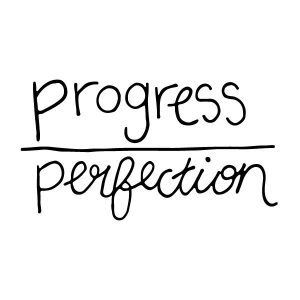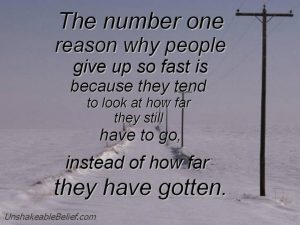
Retrieved from BeingIndispensable
If you thought I forgot, think again. It’s Day 21! In my post 3 weeks ago, Time to Re-Wire: Forming Habits we talked about forming new habits in our lives to upgrade ourselves. I hope you got a chance to read the 3 R’s article and put your new habit into motion. If you have, how’s it been going?
When setting goals in our lives, we usually give ourselves a timeframe to do the work so we can check back in and measure progress/results. My new habit I wanted to work to form was to be in bed by 11:00 p.m. because my goal is to get more sleep. In some cases you can be super excited to see your amazing progress, and in others, you can wind up being discouraged by the results because you expected better.
I know the same feelings can arise when trying to create a new habit. Twenty-one days may have passed and you feel no difference, or no real improvement or progress. Well, habits are essentially a skill. This means that the more you practice forming habits, the better you get at it. If you’re new to it and just starting to develop better habits, take my advice and start extremely small. The reminder, the routine, and the reward are the three pillars and the foundation of the habit-forming loop. This is literally the science behind how habits are formed. Don’t believe me? Read about it here.
If these 21 days have initiated your 180-degree change, congratulations! Me? I’m doing alright lol, I have my relapses, but James Clear says in the 3 R’s article “missing one opportunity to perform the behavior does not materially affect the habit formation process. In other words, it doesn’t matter if you mess up every now and then. Building better habits is not an all-or-nothing process.” Thank you for the affirmation, Mr. Clear! This means you should celebrate how far you have actually gone and continue pushing forward!

Retrieved from YourBirthdayQuotes
Progress is a process.
Remember, whichever habit you choose to work on, don’t get discouraged if it hasn’t become automatic after 21 days. Think of this as the test trial, because as I said in my original post, a lot of concrete research says that 21 days is too short to fully form a habit anyway–but it’s a start. To get to day 400, you have to start at Day 1. Am I right or am I right?? It reminds us that habit, much like success, is NOT “one size fits all”. It’s going to be different for everybody. How long it takes to form a new habit depends on (1) the type of behavior trying to be turned into habit. I mean if you’ve been doing something for decades, 21 days might barely be a scratch on the surface right; and (2), it depends on the biggest factor: YOU. Are you really planning and working towards it?
Pick one habit to form at a time, because overcommitting can be a huge mistake and lead to you feeling discouraged. Start Small. Forget performance for now, and just focus on consistency. Keep in mind the “Three R’s,” and don’t punish yourself for setbacks. Make it fun and enjoy yourself. Everybody needs some help, and creating a support system to keep you on track and “on goal” is a major key. We all slip sometimes, so by having one or more people in your corner, maybe even attempting a new habit as well with you, you can actually increase your chances of sticking to the habit—at least in my own experience. Practice makes (almost) perfect. Keep going!

Retrieved from Pinterest




Thanks for the encouragement as always, Neffi. I’m so comforted by the fact that, as you said, habit forming is not an all-or-nothing process. One habit I have been working on is reading a daily devotional plan called Bible In One Year (2018). Sometimes I start a day’s content without completing it, and just last week I fell behind about four days; it would have been easy to give up, which I did last year with the 2017 plan; but instead I plowed through and caught up. Even if I hadn’t “caught up,” I could have still continued to read a full day’s content each day, building the habit either way, and I would have finished in a year and some days (no big difference). The goal is to just “keep moving forward” (like in “Meet the Robinsons”)!